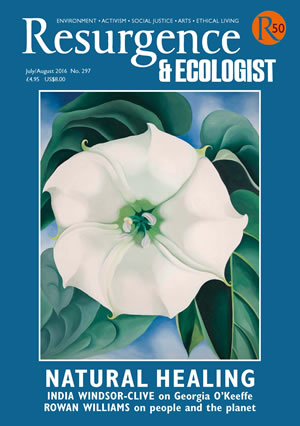Are there anomalies in exploration still to discover? If so, can they tell us about the relationship between humans and Nature? The Boiling River, a short book in the TED series, proves how little we know about some parts of our world, at a time when Google might have us believe we can know everything at the touch of a button.
Andrés Ruzo, a young geologist, heard a legend as a child, handed down by his Quechua grandfather, that the conquistadors were spiritually defeated in 1533 by the doomed Inca emperor Atahualpa, who had encouraged their thirst for gold. The Incas created the notion of Paititi, a city of gold, waiting to be discovered in the Amazon. The invading Spaniards, after defeating the Incas, went in search of it, and many died as a result.
Ruzo’s grandfather’s legend also recounted that the conquistadors who returned told of the horrors of death and disease that the forest visited upon them. Mysteriously among these was the story of a steaming river, its water so hot that if you fell into it you would be boiled alive.
The book tells of Ruzo’s search for the river in the Peruvian Amazon and his amazing discovery, in 2013, that the legend was true. What was remarkable was that no visible references to the existence of the river existed in modern literature, yet it was not too difficult to find. Ruzo finds out that there may have been a cover-up by the energy industry that first discovered oil deposits in the 1930s near where the river emerges. They feared that reporting its existence might deter investors from allowing them to drill.
The Asháninka, who for centuries had occupied the territory where the boiling waters emerge from fissures in the rocks, had long treated the river as a secret and sacred place filled with healing properties. With a history of land invasions by illegal loggers, and murders of their leaders by outsiders, there was little incentive for them to encourage inquisitive visitors.
How such hot water can emerge in the Amazon, far from any volcanoes and where no thermal upwelling has been recorded in the Earth’s crust, forms a part of the mystery Ruzo’s journey attempts to reveal. Along the way he enlists the help of an Asháninka shaman, who takes him into the spiritual world of the forest in search of explanations. “The river shows us what we need to see,” the shaman tells him.
What I found intriguing, but perhaps not surprising, having spent many years investigating tropical forests, is that such a large and obvious wonder should be hidden in plain sight for so long. Ruzo had to pursue his hunch that the river existed in the face of stiff opposition from his PhD supervisor; experts scoffed at the probability of its existence in the knowledge that Peru’s volcanic activity had ‘turned off’ 2 million years ago. Ruzo set out to prove them wrong.
The river’s ‘discovery’ by outsiders could now help to redress the appalling suffering the Asháninka communities have endured at the hands of modern-day entrepreneurs plundering Paititi. Because, of course, the riches that Paititi symbolises are life itself. Evolution delivered to the Asháninka a permanent store of diverse natural capital that others have plundered simply for plywood, murdering their people in the process.
It has taken the Asháninka 12 years to gain title to their lands. The boiling river symbolises the wonder of the forest and its eternal energy bubbling free out of the ground. What will happen now? A spa? Eco-tourism? Is it worse than what the Asháninka have suffered already?
Ruzo’s words sum up the book well: “It’s a story where modern science and traditional worldviews collide – not violently but respectfully – united in their sense of awe for the natural world.”







